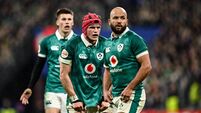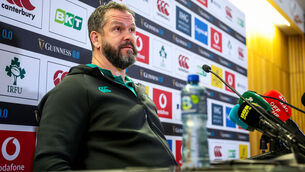The Russians are coming
THERE were, assuredly, many aspects of everyday life that weren’t fun back in the days of the old Soviet Union but, rather surprisingly, those with a predilection for rugby union might have had as tough a time as many others. In the years after the Second World War, for example, Joseph Stalin’s regime decided the sport was “not relevant to the principles of the Soviet people,” and promptly banned it, indicating that it would help the USSR’s “struggle against cosmopolitanism”. Even in the years after Stalin’s death, rugby was looked upon with some suspicion, particularly after an encounter at the World Youth Games, staged in Moscow in 1957, between Llanelli and Grivita Rosa of Romania, ended with both teams, and their supporters, getting involved in a mass brawl.
Fifty-odd years on, Russian rugby — which constituted most of the landscape of Soviet rugby — is back in the mainstream and taking its place on world rugby’s grandest stage for the very first time.















